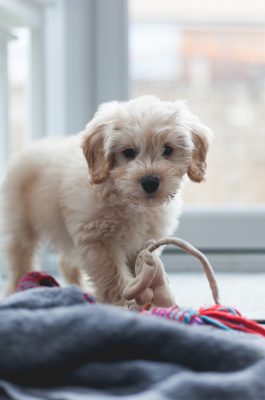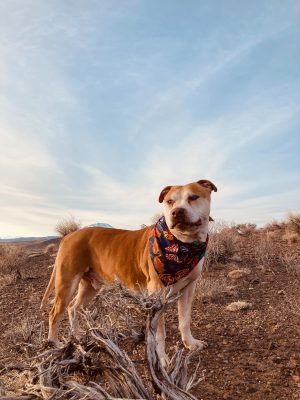Breeds News & Entertainment Pit Bulls Training & Behavior
But Really, Is Breed Actually That Important In Dog Behavior?
If you want a hunting dog, get a Labrador. If you want a family dog, get a Golden Retriever. If you want a guard dog, get a Rottweiler. Every breed has its thing – a specific behavior the discerning dog owner looks for in their canine companion. But, as it turns out in a study published recently in the journal Science, breed may not be the best determiner of future dog skills after all.
In a bid to determine whether being a Chihuahua means being born a tiny sass machine, scientists have determined genetically that dog breeds are not especially helpful in predicting the behavior of an individual canine. Researchers collected 18,385 survey responses (along with 2,155 canine saliva samples) from dog owners through a citizen science project called Darwin’s Ark, and found that breed only explains 9% of behavior.
The combination of the genetic and survey data also revealed that 11 regions of the dog genome are significantly associated with behavior, including whether the dog is a people-pleaser or a howler, but none of these genetic sites are specific to a breed. This suggests that the majority of behaviors, assumed to be characteristics of a certain dog type, actually predate the origin of breeds.
Which actually makes sense with the history of dog. Dogs, as in dog and not wolf, emerged around 10,000 years ago, and humans began intentionally breeding dogs just 2,000 years ago. However, selecting dogs for specific traits, like hunting or looking fabulous in sweaters, developed only around 150 years ago during the Victorian era.
That a behavior could be created and then selected for in a breed within a 150 years, is a bit of a stretch. And, considering the American Kennel Club alone is consistently adding new breeds to their registry, that means there are some breeds known for a specific trait that have existed for less than a decade. It’s fair to say that it’s not technically the breed, it’s the predisposition.

The cockapoo as a breed first came about less than 60 years ago. What judgments could we possibly make? Pexels
“Breed can certainly play a role in terms of predisposing a dog to certain types of behaviors,” said Emma Grigg, an animal behaviorist and researcher at the University of California, Davis speaking to MSNBC. “However, whether or not you see those behaviors in the adult dog depends on many factors, with the environment playing a huge role. Many of the breed behavioral stereotypes put forth by breeding clubs are just not supported by data.”
An important point in consideration to breed-specific legislation particularly for one of the most misrepresented breeds, the American Pit Bull. Legislation banning the Pit Bull (who’s breed status has been under some debate) are not based on science says Mia Cobb, researcher of animal welfare at the University of Melbourne in Australia.
“Any dog has the potential to be dangerous, regardless of its size or breed background.” Cobb says, “Because of this, dogs should not be declared dangerous based on their appearance. Instead they should be assessed as individuals based on their behavior.”

Pitties are just as sweet-natured as any other dog: Pexels
The strongest tool for determining the best dog for an owner’s needs is remembering that dogs are living beings and individuals, experiencing the world as anything else, and affected by that experience.
“Breed can certainly play a role in terms of predisposing a dog to certain types of behaviors,” said Emma Grigg, an animal behaviorist and researcher at the University of California. “Choose the individual, not the breed,” she said. “It is important to remember that all dogs, regardless of breed or mixed ancestry, are individuals. They will likely have their own strengths and weaknesses, just like humans.”
Pure breed or fashion breed, mixed breed or rescue; the debate is not as necessary as once thought. After all, science confirms that the best dog… could be any dog.
